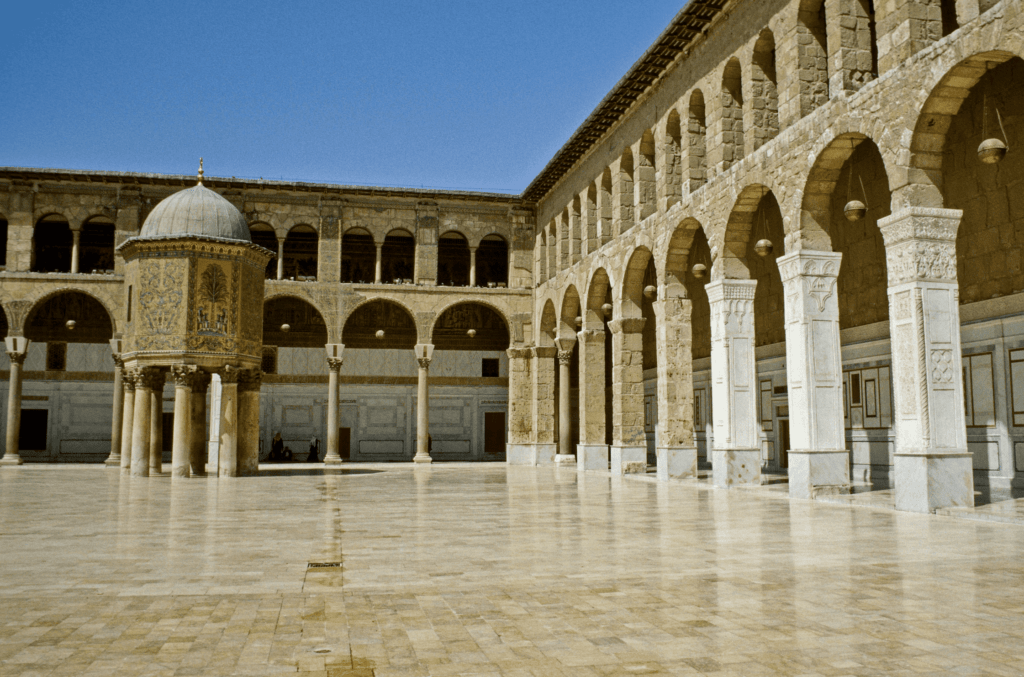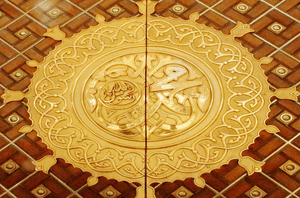Numerous reasons exist for our lack of khushūʿ; generally, as a defect in our heart, and specifically, in our ṣalāh. These include:
1) Weak Īmān
Our īmān in Allah (ʿazza wa jall) is extremely weak. We claim to love Allah, yet we hardly know Him. We disobey Him day and night. We call ourselves ‘His slaves’, yet we choose to submit to the dunyā and our lowly desires. We turn to everything and everyone but Him.
Just as our īmān in Allah (ʿazza wa jall) is weak, our īmān in the hereafter is also weak. Though we believe in ‘death’, we delude ourselves into thinking that we have a long time left. We are ignorant of the hereafter. We are quick to describe Paradise and all its glory, but are uncomfortable discussing the perils of the Hell-fire, the terrors of the Day of Judgement or the punishment of the grave.
Al-Ḥasan al-Baṣrī (raḥimahullāh) described the Companions (radiy Allāhu ʿanhum) as follows, “By Allah, looking at them was like looking at people who could see Paradise and Hell-fire right in front of their own eyes. By Allah, they were not people of argumentation or falsehood, nor did they find comfort in anything except the book of Allah, nor would they show that which was not in their hearts (they were genuine and not hypocritical).”
For the Companions (radiy Allāhu ʿanhum), Jannah was real. Jahannam was real.
2) Far from Allah (ʿazza wa jall) and Close to Sin
Although modernity has brought about its fair share of ease and benefits, it has also produced unprecedented challenges.
Firstly, we have become disconnected from the creation of Allah (ʿazza wa jall) and, by extension, from Him. By and large, we do not feel the need for God or a higher power. If something inside our home breaks down, we call a worker. If we feel hungry, a hot takeaway meal just requires a few swipes on our devices. Nearly every type of fruit or vegetable can be bought from the supermarket throughout the year. Our fast-paced life dictates that we no longer stop to witness and contemplate the greatness of Allah (ʿazza wa jall) and the manifestations of His power in our surroundings.
Secondly, we live in a world where immorality and sin have become widespread and glamourised. Actions that were socially unacceptable a mere half a century ago, even amongst non-Muslims, have now become commonplace for both non-Muslims and Muslims alike. A stark difference between today and the past is the ever-increasing number of ‘Muslims’ who try to ‘justify’ or make ‘ḥalāl’ what Allah (ʿazza wa jall) has clearly made ḥarām.
Thirdly, the advent of the internet, especially social media, has transformed society. Sins are no longer considered matters that one should be ashamed of; something which must be kept between oneself and Allah (ʿazza wa jall). Many of us brazenly expose our sins not just in public, but through online platforms seen and read by tens of thousands of users. Likewise, it has made certain sins very easy to access.
Millions of dollars have been spent on designing social media platforms to ensure that we become addicted to them. These platforms distract us from worship, hinder us from our social and familial responsibilities, and reduce our ability to focus. We feel pressured by social media to ‘share’ everything, including our good deeds. This leads us to doing good deeds for others instead of Allah (riyā’), self-admiration (ʿujb) and pride (kibr). All of the aforementioned diseases of the heart are completely at odds with humility, which is the essence of khushūʿ.
Social media has been designed to amplify the importance of one’s inner self (nafs). Conversely, khushūʿ and true servitude (ʿubudiyyah) require us to diminish our self-importance and venerate Allah (ʿazza wa jall). We must think the highest of Allah and be in awe of His greatness, while thinking of ourselves as insignificant. The less importance we attach to ourselves, the greater our awe and reverence (taʿẓīm) of Allah will be.
3) Love of the World
The love of the world (dunyā) is one of the major reasons for the weakness of our īmān. Success in today’s materialistic society is defined by how ‘rich’ or ‘famous’ you are. Despite our beautiful dīn having laid down the yardstick for success, we still buy into the corrupt dominant narrative. We strive hard to accumulate the riches of the dunyā, be it clothes or cars, luxury homes or the latest gadgets.
Enjoying such luxuries is not wrong nor is it a sin, however, it can develop into a wrong if it becomes our purpose in life. The Messenger of Allah ﷺ said, “Every ummah has a fitnah (trial), and the fitnah of my ummah is wealth” (Tirmidhī).
Imām al-Ghazālī (raḥimahullāh) calls the love of the world “the root of every shortcoming and the source of all corruption”. He states that when the love of the world enters the heart of the person to such an extent that he no longer takes provisions from it for the hereafter, he can no longer hope to experience the pure bliss of conversing with Allah (ʿazza wa jall) in ṣalāh.
This is because the person who experiences his joy in this world will not experience the joy of conversing with Allah. A man aspires to that which gives him joy and, if his joy is rooted in this world, then he will certainly aspire and work hard to attain that.
4) We Couldn’t Care Less: Hedonism and Apathy
We have lost sight of our purpose in life. No longer is our focus and goal in life to please and worship Allah (ʿazza wa jall). Along with rampant materialism, our lives are plagued with hedonism (where pleasure and satisfying one’s desires is the sole aim of human life) and apathy. Statements like YOLO (You Only Live Once), encourage us to ‘have as much fun as possible’. Endless entertainment is making us apathetic to the condition of our souls and the plight and suffering of humanity. One reason why we have lost khushūʿ in our lives is because ‘we couldn’t care less’. It doesn’t bother us. Allah (ʿazza wa jall) reminds us in Sūrah al-Ḥadīd:
“Has the time not come for those who have believed that their hearts should become humbly submissive at the remembrance of Allah and what has come down of the truth” (57:16)?
Let us be like the great Companion ʿAbdullāh b. ʿUmar (radiy Allāhu ʿanhumā). He would cry upon hearing this āyah and respond by stating:
Certainly, my Lord! Certainly, My Lord!
Regret your past and make a firm resolve!
From this point onwards, regret your past sins. Regret your absence of khushūʿ. Cry over your distance from the One who has created you and is the Source of all your blessings. Resolve to turn a new leaf, both in how you conduct your life and in your ṣalāh. From today onwards, resolve to pray with khushūʿ through the tawfīq (divine accord) of Allah.






